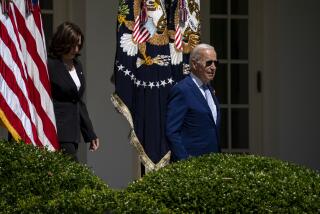As for the French Proposal--Non
With the U.N. inspections regime for Iraq a dead letter and the international community getting sanctions-fatigue, the French have proposed a new plan for dealing with Saddam Hussein.
The French proposal would lift the oil embargo on Iraq and impose a new commission to monitor Iraq’s development of weapons of mass destruction. Vice President Al Gore signaled the U.S. government’s willingness to consider this new direction in policy. It would be a mistake.
For the past six years the United States’ approach toward Iraq has been haphazard and reactive. While talking about long-term containment, U.S. officials have in fact ceded the initiative to Saddam. With each test of U.S. resolve, the administration’s ad hoc and incremental response has left Saddam in a slightly stronger position.
The U.S. has countered by changing goals with every crisis. This flavor-of-the-month approach was evident in the last round. After the administration harshly criticized the findings of U.N. weapons inspector Scott Ritter, it then justified Desert Fox on Ritter’s evidence. The military campaign was undertaken ostensibly to “degrade Iraq’s military capabilities,” but the president and his national security advisor suggested they wanted to replace Saddam’s regime.
This uncertainty about goals and means is all the more troubling because one could easily foresee that the pattern of Saddam’s challenges would lead to another round. But each time the administration has been taken by surprise, patching together a reaction that did not match the challenge.
Saddam, on the other hand, has had a focused strategy. Since 1991, he has been working assiduously to split the international coalition arrayed against him, get rid of the weapons inspectors and lift the yoke of sanctions from his country. He has poked and prodded the international community by trying to assassinate former President Bush, threatening his neighbors, brutally reasserting control over the Kurdish lands in Iraq, harassing the U.N. weapons inspectors and challenging the no-fly zones.
He continues to press the U.S. because even if he loses militarily, he wins strategically. He picks the time and manner of his moves, retaining the initiative. As a result, he has steadily gained in pursuit of his goals.
To cap off this cycle now by rewarding Saddam for his truculence and threats would be a very bad move and one that would not alleviate the suffering of innocents in Iraq. As many Arab leaders remind us, the Iraqi people are suffering not because of sanctions, but because of Saddam Hussein. He is not selling all the oil he could today to provide for food and medicine in Iraq. Moreover, much of the money Iraq earns goes to his inner circle and military.
The French proposal would send Saddam the signal that all is forgiven, and put into place a supposed monitoring system that, over time, would have the effect of disassembling the U.S. and allied military pressure on Iraq. Let there be no mistake. U.S. and allied military pressure is the only sort of power Saddam understands and respects. He has shown, time and time again, that he will do only what he wants to do unless coerced.
The signal to U.S. allies in the region would be as clear as it would be to Saddam. Challenge the U.S. and be rewarded. Already the indecisive and ever-shifting nature of U.S. policy in the Persian Gulf has put allies on edge. An America that concluded this deal could hardly expect allies to fall into line for a military strike when Saddam again challenges a new weapons monitoring regime--as we know he will.
Dealing with Saudi Arabia and other Gulf states over the past 20 years has shown that if the U.S. looks weak and confused, Arab allies will vacillate as well.
Dealing with Iraq cannot be viewed in the isolation of this week’s headlines about Saddam’s moves. It must instead be looked at in the context of security in the critical Persian Gulf region, the proliferation of weapons of mass destruction around the world and the behavior of dictators that can threaten so many people and send the U.S. to war as happened in 1991.
The United States needs a strategy that regains the initiative. We want Saddam to be preoccupied with the next move the U.S. might take against him, not planning his next action. When he tries to move one step forward, he must be pushed two steps back. We want everyone to recognize that at the end of the day, the U.S. and its allies will be left standing, not Saddam.
Lifting the oil embargo would not help the Iraqi people but would send precisely the wrong signal to a very dangerous dictator.
Robert B. Zoellick is president and CEO of the Center for Strategic and International Studies in Washington. John Hillen is senior fellow in political-military studies there.
More to Read
Sign up for Essential California
The most important California stories and recommendations in your inbox every morning.
You may occasionally receive promotional content from the Los Angeles Times.










